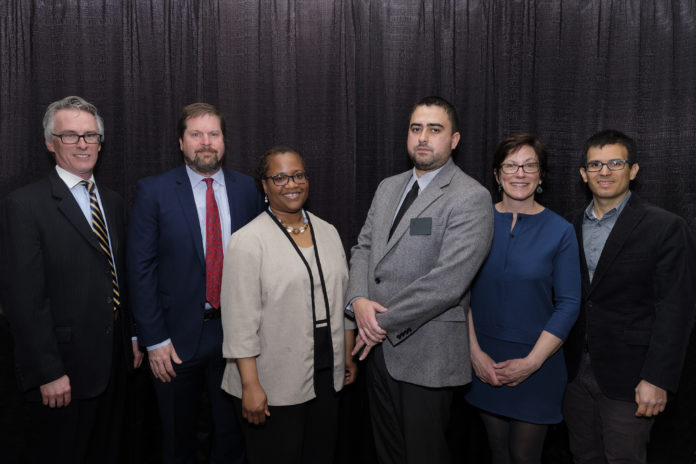
With a new gift, the University of Denver Sturm College of Law will expand its clinical work in crimmigration.
The school on Tuesday announced that it received a $414,000 grant from The Gateway Fund II of The Denver Foundation and a $25,000 grant from The Denver Foundation’s Immigrant Legal Services Fund. The money will fund the school’s new Immigration Justice Project, which will consist of an immigration law and policy clinic, a crimmigration law and policy event series and a postgraduate public interest fellowship at the Rocky Mountain Immigrant Advocacy Network.
“As the founder of the American clinical legal education movement, the Sturm College of Law has been dedicated to advancing access to justice in the communities we serve for more than a century,” said Sturm College of Law Dean Bruce Smith. “Thanks to the generous commitment of both funds of The Denver Foundation, our faculty and students are in an unparalleled position to impact immigration law and policy in a significant and beneficial way.”
Professor Chris Lasch, who will lead the clinic with professor Robin Walker Sterling, said the clinic’s inaugural cohort of 14 students, who started their work in August, have already met with clients at a federal detention center in Aurora, argued on multiple occasions in court and succeeded in all of its cases to date — which included a federal habeas corpus action in order to obtain clients’ release.
“We are in a community that has distinguished advocates and a powerful nonprofit presence in the immigration area, but there is still much work that can be done,” Lasch said.
The gift was announced in conjunction with the latest crimmigration law and policy panel discussion, led by Professor César Cuauhtémoc García Hernández. The discussion focused on the use of detainers, their legality and some litigation in Colorado challenging their use.
Detainers have recently been used to hold immigrant criminal detainees at the federal government’s request in order to begin immigration proceedings. University of Idaho Professor Kate Evans discussed the legal history of similar procedures of holding people without warrants or charges for civil proceedings dating back hundreds of years through English common law.
A detainer is a form sent from Immigrations and Customs Enforcement on behalf of the federal government to local law enforcement agencies directing them to hold an immigrant or someone with questionable immigration status. Detainers currently used by ICE direct law enforcement to hold their subjects for up to 48 hours after they might otherwise be released — providing an opportunity for ICE to pick that person up and begin immigration proceedings. And as Lasch pointed out, one legal sticking point deals with whether these directives are orders or requests.
“What this form is now telling me is that federal regulations require me not to release a person when they have posted on for example, not to release them when their charges have been dismissed, not to release them when they have been perhaps convicted and sentenced to probation.” Lasch said.
Evans also pointed out that these detainers are also issued without warrants and that immigration proceedings are civil legal issues, not criminal ones.
“It never goes through any form of state court, federal court, nor does it go through an immigration judge — even if that was sufficient,” Evans said. “We don’t have any ambiguity with whether these detainers are for criminal or civil purposes. They’re clearly civil. And there’s not ambiguity as to whether or not they go through a court. They don’t. They’re an administrative warrant issued by a law enforcement officer.”
Colorado has been one of the few states to successfully challenge the ability of county sheriffs to honor detainers for pretrial detainees. American Civil Liberties Union of Colorado legal director Mark Silverstein discussed the ACLU’s case against the El Paso County Sherriff’s Office for issuing detainers, which resulted in a preliminary injunction.
“That case is now on appeal to the Colorado Court of Appeals, and we are hoping for a ruling that will have statewide effect,” Silverstein said. “Why do we need statewide effect? Because the sheriff in the county next door, in Teller County, who is in the very same judicial district as the El Paso County Sheriff, is also honoring ICE detainers.” That challenge failed to get the same result as the El Paso County case, and Silverstein is now hoping an appellate decision unifies how such detainers are viewed across Colorado.
— Tony Flesor, [email protected]

